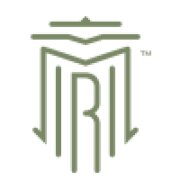Best Drugs & Medical Devices Lawyers in Tehran
Share your needs with us, get contacted by law firms.
Free. Takes 2 min.
List of the best lawyers in Tehran, Iran
About Drugs & Medical Devices Law in Tehran, Iran
The field of Drugs & Medical Devices in Tehran, Iran, is an intricate landscape governed by a set of regulations aimed at ensuring public safety and the efficacy of healthcare products. The laws cover everything from the clinical trial process, registration, importation, distribution, to the marketing and advertising of pharmaceuticals and medical devices. Iran places strict guidelines to prevent substandard products from reaching the market and to protect consumer rights.
Why You May Need a Lawyer
Individuals and companies may require legal assistance in several situations concerning drugs and medical devices, including compliance with regulatory standards, handling disputes over patents and trademarks, navigating inspections by government authorities, and challenging the results of clinical trials. Additionally, incidents involving adverse reactions to drugs or faulty medical devices may necessitate legal action for compensation or to address liability issues.
Local Laws Overview
The legal framework for drugs and medical devices in Tehran is primarily governed by the Food and Drug Administration of Iran, part of the Ministry of Health and Medical Education. Key aspects include the necessity for local clinical trials and safety evaluations, strict guidelines on labeling and pricing, and comprehensive procedures for approving new products. Importation of foreign pharmaceuticals and devices requires additional scrutiny and licensing. Violations of these laws can result in significant penalties, including fines or revocation of business licenses.
Frequently Asked Questions
What is the process for registering a new pharmaceutical product in Iran?
To register a new drug, you must submit a detailed application to the Iran Food and Drug Administration, including clinical trial data, safety and efficacy information, and proposed labeling.
Are there specific regulations for importing medical devices into Iran?
Yes, importing medical devices requires obtaining relevant licenses and approvals from the Iranian Ministry of Health. Products must comply with both international standards and Iranian regulations.
What should I do if I experience an adverse reaction to a medication?
Report the reaction to your healthcare provider and the Iran Food and Drug Administration. Consulting a lawyer may also be advisable if seeking compensation or want to discuss liability.
How are disputes over drug patents resolved in Iran?
Such disputes are usually handled through the Iranian Intellectual Property Office and may involve litigation if the matter is not resolved through negotiation.
What role does the Ministry of Health play in drug regulation?
The Ministry of Health is responsible for setting health policies and regulations, overseeing clinical trials, and ensuring compliance with medical standards.
Can consumers challenge the approval of a medical device?
Consumers can file complaints with the Ministry of Health if they believe a device is unsafe. Legal advice may be necessary to pursue further action.
Are there restrictions on advertising pharmaceutical products?
Yes, strict regulations govern the advertising of pharmaceuticals to prevent misleading claims and ensure only approved and truthful information is disseminated.
How are counterfeit drugs dealt with in Iran?
The Iranian government actively combats counterfeit drugs through rigorous regulatory measures and penalties for offenders.
What legal recourse is available if a medical device causes harm?
You may seek compensation by pursuing legal action against the manufacturer or distributor, often necessitating the involvement of a lawyer specializing in medical device law.
How does Iran regulate clinical trials for new drugs?
All clinical trials must be approved by the Ministry of Health, adhering to ethical standards and comprehensive protocols to ensure patient safety and data integrity.
Additional Resources
For more information or assistance, consider reaching out to the Iran Food and Drug Administration, the Ministry of Health and Medical Education, or the Iranian Society of Medical Devices and Equipment. Consulting local law firms specializing in healthcare law may also be beneficial.
Next Steps
If you need legal assistance related to drugs and medical devices in Tehran, start by identifying your specific legal needs. Consult with a lawyer who specializes in health law to understand your rights and the best course of action. Compile any relevant documentation or evidence, and ensure you are familiar with the local laws and regulations governing your issue. This preparation will aid in a clearer and more effective consultation.
Lawzana helps you find the best lawyers and law firms in Tehran through a curated and pre-screened list of qualified legal professionals. Our platform offers rankings and detailed profiles of attorneys and law firms, allowing you to compare based on practice areas, including Drugs & Medical Devices, experience, and client feedback.
Each profile includes a description of the firm's areas of practice, client reviews, team members and partners, year of establishment, spoken languages, office locations, contact information, social media presence, and any published articles or resources. Most firms on our platform speak English and are experienced in both local and international legal matters.
Get a quote from top-rated law firms in Tehran, Iran — quickly, securely, and without unnecessary hassle.
Disclaimer:
The information provided on this page is for general informational purposes only and does not constitute legal advice. While we strive to ensure the accuracy and relevance of the content, legal information may change over time, and interpretations of the law can vary. You should always consult with a qualified legal professional for advice specific to your situation.
We disclaim all liability for actions taken or not taken based on the content of this page. If you believe any information is incorrect or outdated, please contact us, and we will review and update it where appropriate.








